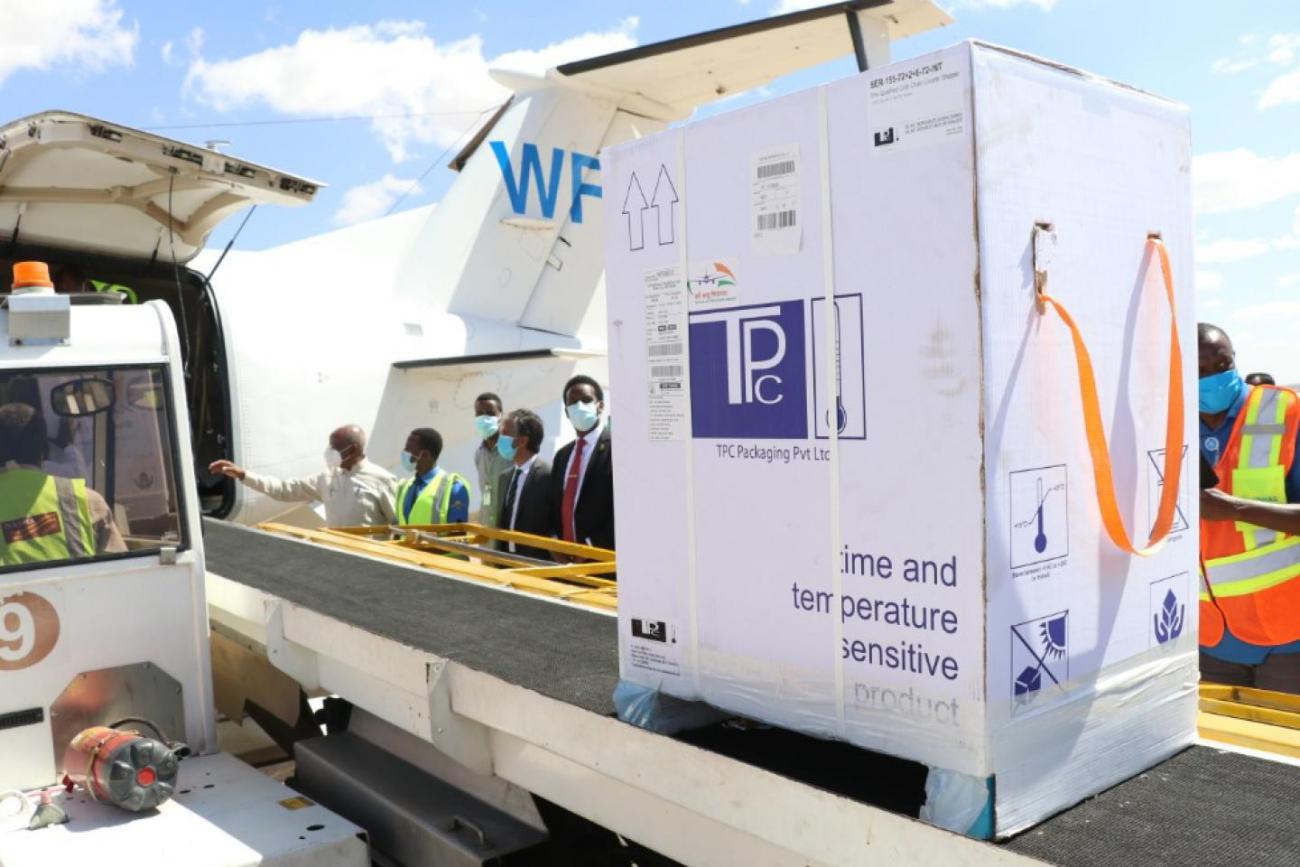On the frontlines delivering COVID-19 vaccines

UNICEF Somalia Health Specialist reflects on his experience
By Abdisalam Bahwal
The COVID-19 pandemic has led to millions of infections and deaths worldwide, damaged economies and disrupted critical social services. To stop this devastating pandemic, the world has embarked on perhaps the largest and most complex vaccination program in history. Many low and lower-middle income countries, like my home country, have received their first shipments of COVID-19 vaccines. So, what does it feel like to be one of the UNICEF staff members on the frontlines of delivering these vaccines?
I would like to share some key takeaways from my first-hand experience:
Existing system and a new product
At UNICEF, we have decades of experience in routine immunization and polio eradication campaigns. We rely on dedicated professionals, vast network of warehouses and logistics partnerships to accomplish this.
Still, the arrival of the new vaccines called for extra preparations. Together with the Ministry of Health and partners, we educated the involved staff and partners on the vaccine as well as its cold chain requirements and system. Our health workers’ experience in conducting mass immunization campaigns came in incredibly handy and helped us to prepare well.
Besides testing us, the vaccine rollout put our existing, local health systems to the test as well. Prior to the first shipment, we took inventory of the cold chain equipment at central, regional, district and health facility levels. It showed us that the investments made in upgrading and expanding the cold chain system in Somaliland, including the installation of solar refrigerators in rural health centres, would clearly pay out when we would start distributing and storing the vaccines.
The stakes to succeed were high and I repeatedly asked myself if everything was in perfect order until the moment the first consignment of the vaccines safely landed and found its place in the cold room.

UNICEF Somalia/2021

UNICEF Somalia/2021
Mobilizing to vaccinate
Besides successfully receiving the vaccines, it was equally important to make sure the vaccinations would start quickly and efficiently.
Our immunization campaigns usually target young children and pregnant mothers. For the first batch of the COVID-19 vaccines, we are prioritizing essential workers and people who are at highest risk to make sure health and other essential services continue to function and deaths among people at risk, especially the elderly, can be reduced. To reach these new target groups, we worked closely with our partners to map, pre-register where possible, and mobilize them.
As we received limited doses of vaccines, it has been important to make sure there is enough demand from these priority groups while avoiding raising expectations of the wider public. So, how are we doing this?
Rumours and vaccine misinformation are increasingly present online, on news sites and social media platforms, and they tend to proliferate, like the pandemic itself. The frontline workers, like any of us, can be exposed to these misinformation campaigns. Unfortunately, this might lead to some of them refusing to take the vaccine and it may even have a ripple effect on the general population.
In Somaliland, public immunization of political and public health leaders as well as experienced and trusted frontline workers has proved effective in shoring up acceptance and demand for the vaccines. Our extensive social mobilization network for polio has also played a key role in sharing accurate information and debunking rumours.

UNICEF Somalia/2021/Bahwal
Abdisalam (author) in the UNICEF t-shirt (right) with his colleagues from WHO and the Government receiving the first batch of COVID-19 vaccines in Hargeisa, Somaliland.
Future
It has been professionally stimulating and psychologically rewarding to contribute to the delivery and the rollout of the vaccines. As we continue to scale up and get more doses to more places and people, the world will start to turn the corner on the pandemic. We will slowly begin to go on with our work and lives while retaining memories of our individual and institutional contributions to this historic health initiative.
Link to the original story.

